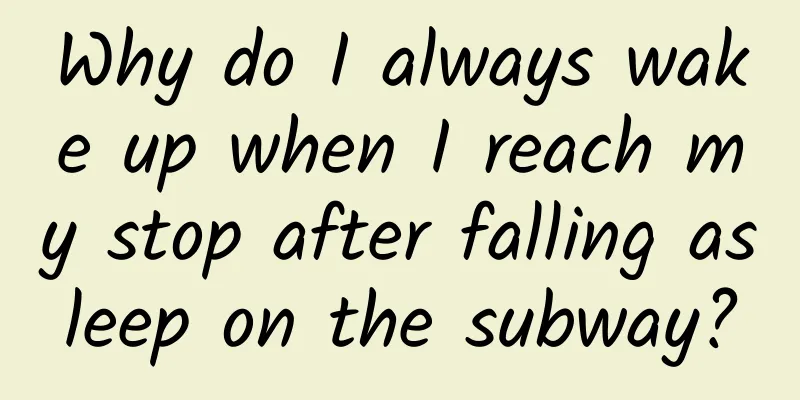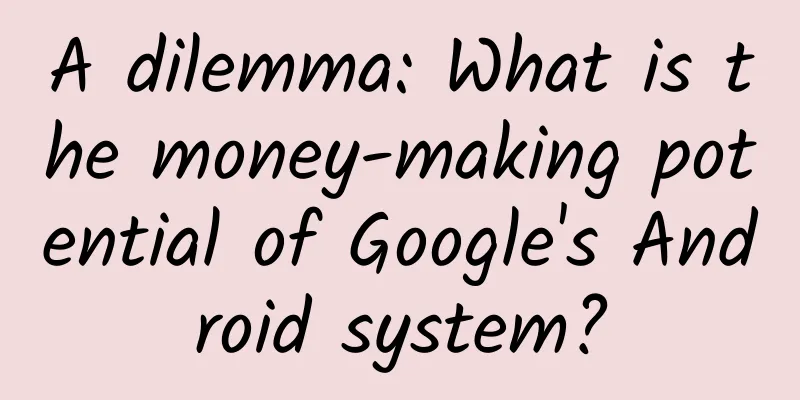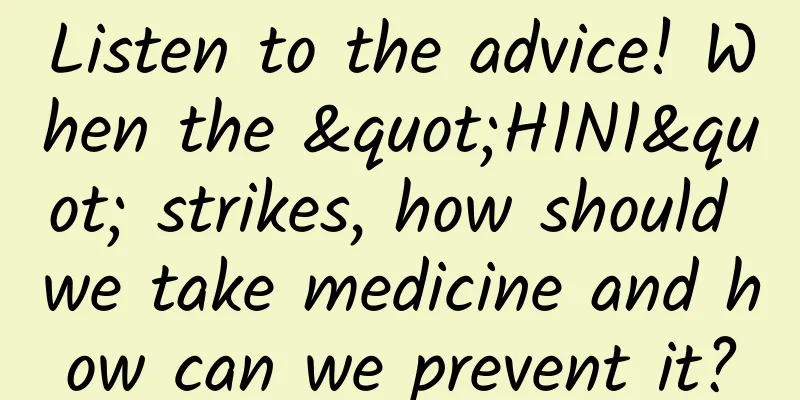Why do I always wake up when I reach my stop after falling asleep on the subway?

|
Audit expert: Sun Tao National Psychological Counselor I wonder if you have ever had this experience: sitting on a bus or subway, listening to the familiar arrival and broadcast reminders, and falling asleep in a daze, but the amazing thing is that you always wake up when the station is about to arrive. Source: Pexels But why do we wake up before reaching our destination even though we are sleeping soundly on the bus? Is it because the "land god" living at the destination sneaks into our mind and wakes us up? Or are we born with this "superpower"? The role of biological clock The body clock, also known as the physiological clock, is determined by the time structure sequence in the body. It is the internal rhythm of life activities and reflects the laws and periodic movements of living substances. The human biological clock is the phenomenon that the physiological processes, morphological structures and behaviors in the human body change periodically over time. The biological clock is a foresight and early warning mechanism selected by the environment in the long-term evolution of organisms. It can foresee the occurrence of a regular event. It is the same as eating and sleeping at a certain time in our daily life. If you have a fixed time to get on and off the bus every day, over time, the biological clock will remember this time. It can sense when you need to get off the bus and wake up your body naturally before that time to prepare for getting off the bus. But you think, huh? How come I woke up just before the stop! Source: wiki.smzdm.com But if this is your first time taking this train, or the time of each ride is different, your body's biological clock will not be able to recognize it, and you will most likely miss your stop. Subconscious notification If we compare our psychological and conscious activities to a huge iceberg, then the small corner floating on the water is equivalent to the psychological activities that we can perceive, called the conscious mind; and the larger part under the water is the psychological activities that we cannot perceive, that is, the subconscious mind. Source: unsplash The subconscious refers to those mental activities that have not reached the conscious level. In some research discussions, the subconscious is also used to refer to what Sigmund Freud called the preconscious, that is, those contents that are not directly paid attention to by people, but can be quickly aware of with a little attention. For example, we usually ignore background noises such as cicadas in the trees, the sound of wind, or the hum of heating and cooling systems, but it is not difficult to bring these sounds into our consciousness if we want to. By the same token, before you fall asleep on the bus, your subconscious mind has repeatedly told you which stop you should get off at. Although the thought of getting off the bus does not reach your conscious state during your sleep, your brain will still treat it as something that needs attention and will wake you up before you arrive at your stop. Isn’t it amazing? Source: pixabay Cocktail Party Effect Even though we fell asleep on the train, we can still hear the announcement of the upcoming stop, thanks to the brain's guards - the ears. But why can't we realize it ourselves? In fact, human hearing is selective, which is called the "cocktail party effect" in psychology. The cocktail party effect refers to the brain's ability to focus a person's auditory attention on certain stimuli while filtering out some other sounds. This phenomenon can occur in two situations: one is when we focus our attention on a certain sound; the other is when our auditory senses are stimulated by certain specific stimuli. For example, when a brain-twisting suspense drama reaches a critical plot, you are concentrating on listening to the protagonist's reasoning, and naturally "turn a deaf ear" to other sounds in reality; or when you are in an unfamiliar and noisy environment, you suddenly hear the voice of an acquaintance or someone mentions your name, even though it is very noisy around you, you can immediately notice it. Similarly, although we fell asleep on the bus, under the influence of the cocktail party effect, our auditory attention will be focused on the name of the station we are going to get off, and when we hear the broadcast reminder of the upcoming stop, we will immediately wake up. Source: Zhihu Another reason is that we sleep lightly on the train and rarely enter a deep sleep state. In fact, in the noisy environment of the train, we will wake up every few minutes and subconsciously check whether we have arrived at the station. If not, we will continue to sleep. Therefore, sometimes you will feel uneasy when sleeping on the train. The above are several common explanations for this problem. Of course, if you fall asleep when you are very tired, the chance of oversleeping will be very high, so everyone should pay attention to rest and not let the body be too tired. |
>>: An ecologist's mathematical exploration
Recommend
Traditional car companies don't want to fall behind, Ford plans to invest 29 billion in the development of electric vehicles and autonomous driving in five years
The traditional auto industry is continuously inc...
High-value model for private domain operations!
Does your private domain need traffic growth? Is ...
How to eat before an exam? Two principles and five quick answers
The time for the college entrance examination, th...
Will our poop pollute rivers, lakes and seas?
People have to eat grains and cereals to get rid ...
Zeng Shen's exquisite ni product performance first issue
Zeng Shen's exquisite ni product performance ...
Short video live streaming skills
This time I will share with you some live broadca...
Case analysis: How to optimize information flow advertising during the off-season?
In recent years, with the implementation of housi...
From 0 to 1, how to build a ToB market operation system? (Down)
Nowadays, ToB plays an increasingly important rol...
Ultra-high voltage provides one less excuse for not doing homework!
Vocabulary Ultra-high voltage Potential safety ha...
niaoniao's 18th C4D+OC rendering course will end in January 2022 [HD quality with materials]
niaoniao's 18th C4D+OC rendering course will ...
Lu Feifei_Fei Chang Memory Super Brain Training Camp 34th
Lu Feifei·Fei Chang Memory Super Brain Training C...
Heather smells so "dirty", why is it planted all over the streets?
There is a popular saying: "If you can't...
Teddy bear travels 10,000 meters in the sky! Looks high? But it’s not in space!
In recent days, a video of several college studen...
Durex brand communication analysis!
The quality of Durex products themselves is not t...









